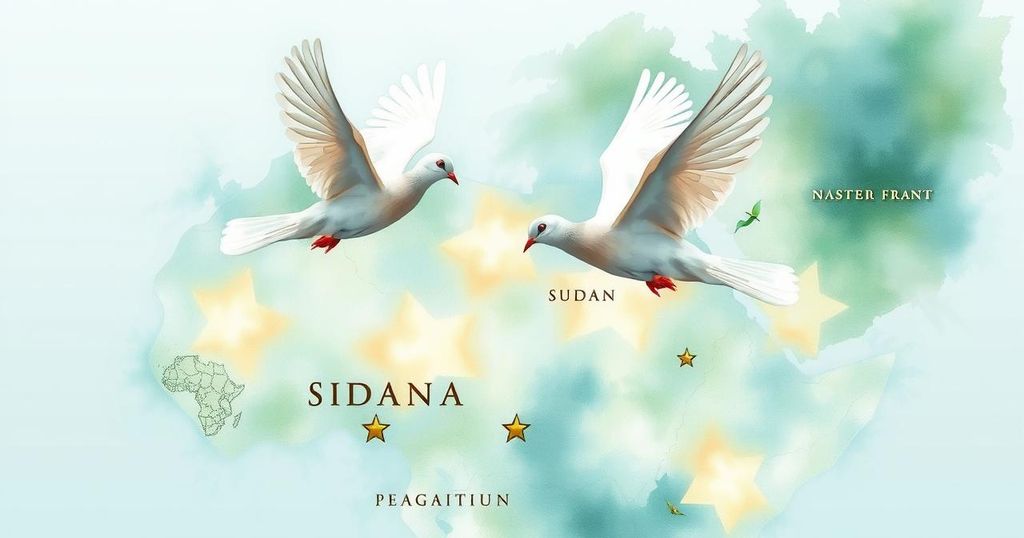US Collaborates with Partners to Resolve Conflict in Sudan

The United States is collaborating with partners, including Saudi Arabia, to end the conflict in Sudan. The State Department aims to cease hostilities and support a civilian-led government. Emphasizing accountability, the US employs diplomatic channels, sanctions, and humanitarian aid to address the crisis. The focus remains on aiding the Sudanese people while urging both warring factions to engage in a constructive political process.
The United States is committed to ending the conflict in Sudan and is collaborating with regional and international partners, notably Saudi Arabia, to initiate a cessation of hostilities and facilitate a transition towards a civilian-led government. Mignon Houston, the deputy spokesperson for the US State Department, emphasized during an interview with Asharq Al-Awsat that the foremost priority remains to halt the fighting.
Houston asserted that the new administration under President Donald Trump is fully engaged in Sudan, maintaining neutrality in the conflict while supporting the desires of the Sudanese people for a democratic future. She highlighted the catastrophic humanitarian situation in Sudan, being the largest crisis globally, and affirmed that the US remains actively involved in addressing this dire issue.
The US is employing multiple diplomatic strategies, engaging with the African Union, UN, and other key organizations to advocate for a cessation of hostilities. Houston noted that collaboration with these institutions and regional governments aims to foster lasting peace in Sudan and fulfill the aspirations of its people.
She called for all foreign entities to contribute positively towards resolving the Sudan crisis, emphasizing that detrimental interference would worsen the situation. Houston articulated that the US is clear about the necessity for constructive foreign involvement, stating any complicity in prolonging the conflict would exacerbate the suffering of the Sudanese population.
In addition to diplomatic efforts, the US has enforced economic sanctions against the Sudanese Armed Forces and the paramilitary Rapid Support Forces, asserting that these measures are vital for nudging both factions towards ceasefire negotiations. Moreover, Houston highlighted ongoing humanitarian aid efforts, noting that 1.2 million people received life-saving assistance in just the first two weeks of March.
Nonetheless, she pointed out that sustainable economic recovery in Sudan is unattainable until violence ceases. The focus remains squarely on the Sudanese populace and ending hostilities, as both warring parties bear responsibility for the ongoing devastation and instability.
Houston urged the need for collaboration between both factions to establish a political process aimed at forming a civilian-led government. She reiterated the importance of prioritizing the needs of the Sudanese people over political ambitions, calling on regional partners to take this responsibility seriously. Under Secretary of State Marco Rubio, the State Department is working alongside humanitarian organizations and urging donor nations to ramp up their support in addressing the crisis effectively.
In conclusion, the United States, under the leadership of the State Department, is dedicated to resolving the conflict in Sudan by engaging with international and regional partners. A comprehensive strategy that involves diplomatic pressure, humanitarian assistance, and economic sanctions is in place to foster a peaceful resolution and support the needs of the Sudanese people. Both warring parties are urged to take accountability for the violence and work collaboratively towards establishing a civilian-led government, essential for the stabilization and recovery of Sudan.
Original Source: www.arabnews.com








